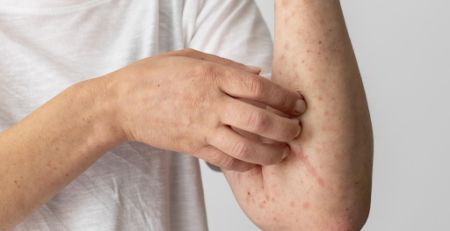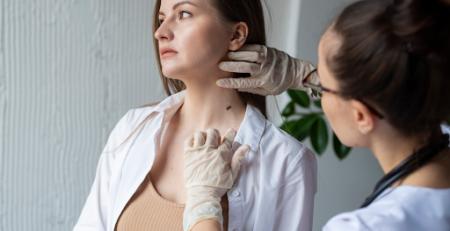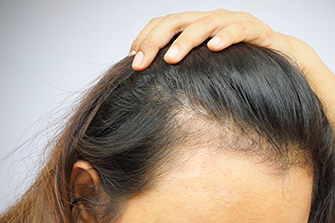Dermatology Studies: Advancing Skin Treatment Through Research
Dermatological conditions like psoriasis, eczema, and acne affect millions of individuals worldwide, impacting not just physical health but also emotional well-being. Advances in dermatology clinical trials are opening new frontiers for more effective and personalized treatments. These studies serve as the backbone for new therapies, driving innovation, safety, and efficacy in the treatment of skin diseases.
If you or a loved one are dealing with chronic skin issues, understanding the role of Cahaba Clinical Research, especially psoriasis clinical studies and paid clinical trials for psoriasis, can offer you early access to novel therapies while contributing to scientific progress.
What Are Dermatology Clinical Trials?
Defining Clinical Trials in Dermatology
Clinical trials in dermatology are structured medical research studies that assess the effectiveness and safety of treatments, procedures, or diagnostic tools related to skin health. These can include drugs, topical applications, biologics, or light-based therapies.
The Four Phases of a Dermatology Trial
- Phase I – Assesses safety and dosage in a small group.
- Phase II – Evaluates efficacy and side effects in larger groups.
- Phase III – Confirms effectiveness, monitors adverse reactions, and compares with standard treatments.
- Phase IV – Conducted after FDA approval to monitor long-term effects.
Who Conducts These Trials?
- Pharmaceutical companies
- Academic institutions
- Government agencies like the FDA and NIH
- Private clinical research organizations (CROs)
Common Dermatological Conditions in Research
Psoriasis Clinical Studies
Psoriasis affects over 8 million people in the U.S. alone. Current research is focused on:
- Immune-modulating biologics (e.g., IL-17, IL-23 inhibitors)
- Combination therapy efficacy
- Reducing treatment resistance
Participants in psoriasis clinical studies gain access to promising treatments not yet available to the general public.
Eczema and Atopic Dermatitis
Eczema research explores:
- New topical corticosteroids with fewer side effects
- Biologic therapies targeting cytokine pathways
- Preventative treatment in pediatric populations
Acne Research
Acne clinical trials investigate:
- Hormonal treatment in teens and adults
- Topical antibiotics and retinoids
- New light and laser technologies
Paid Clinical Trials for Psoriasis: What to Know
Why Are These Trials Paid?
Paid clinical trials for psoriasis compensate participants for their time, travel, and the level of medical involvement required. This is especially common in:
- Phase I and II studies with frequent visits
- Trials requiring skin biopsies or intensive lab work
Typical Compensation
Participants may receive anywhere from $300 to $3,000+ depending on the duration, invasiveness, and phase of the study.
Ethics and Safety
These studies are reviewed by Institutional Review Boards (IRBs) to ensure patient safety and informed consent.
Benefits of Joining a Dermatology Clinical Trial
- Early access to cutting-edge treatments
- Specialized care from top dermatologists
- Close medical monitoring
- No-cost or low-cost medications
- Financial compensation (in some cases)
Risks and Considerations
- Unknown side effects of new medications
- Time commitment for frequent visits
- Possibility of receiving a placebo
Who Can Participate?
General Eligibility
- Must have a confirmed diagnosis (e.g., moderate-to-severe psoriasis)
- Age range usually 18–65
- No conflicting health conditions
Diversity in Trials
Modern trials now emphasize inclusion of various ethnic groups and underrepresented populations for comprehensive results.
How to Find Dermatology Trials Near You
- ClinicalTrials.gov – Use filters to locate studies based on condition and location.
- CenterWatch – Offers patient-friendly listings.
- Hospital websites – Many teaching hospitals list open trials.
- Dermatology clinics – Contact local clinics participating in research.
Innovations Emerging from Dermatology Studies
- Biologics like secukinumab and ustekinumab for autoimmune skin diseases.
- Microbiome therapy to restore healthy skin flora.
- Gene therapy being tested for rare genetic skin conditions.
- AI-driven diagnostics in early trial phases.
The Future of Skin Treatment Through Research
- Personalized medicine based on genetic profiles.
- Nanotechnology in topical drug delivery.
- Real-time patient monitoring apps to report treatment responses.
These advancements could potentially eliminate trial-and-error prescriptions and enhance long-term skin health outcomes.
Final Thoughts
Participating in a dermatology clinical trial can be a powerful way to improve your own health while shaping the future of medicine. Whether you’re exploring psoriasis clinical studies or interested in paid clinical trials for psoriasis, staying informed is the first step.
Contact our clinical research team today to learn about active dermatology trials near you, check your eligibility, and see how you can contribute to the future of skin treatment — while potentially gaining early access to innovative care and compensation.
Frequently Asked Questions
1. What skin conditions are commonly targeted in dermatology clinical trials?
Clinical research in dermatology often focuses on conditions such as psoriasis, eczema, acne, hidradenitis suppurativa, and vitiligo. These trials are designed to improve treatment outcomes, uncover new therapies, and advance personalized medicine for chronic and hard-to-treat skin issues.
2. Are paid clinical trials for psoriasis regulated for safety?
Yes. All clinical trials — including paid studies for psoriasis — are reviewed and approved by ethics boards and follow strict safety protocols. Participants go through an informed consent process, and every step of the trial is monitored to ensure compliance with medical and ethical standards.
3. How much compensation can I expect from a psoriasis clinical trial?
Compensation varies based on the duration, procedures involved, and trial phase. In general, participants may receive between $300 to $3,000 or more, depending on the intensity and commitment required for the study.
4. Can I join a dermatology trial if I’ve tried other treatments before?
Yes. Many dermatology clinical trials are specifically designed for individuals who have already used standard therapies without success. A screening process will determine your eligibility based on your medical history and current condition.
5. How can I find and join a dermatology clinical trial near me?
To find out about current studies, including psoriasis clinical trials, reach out directly to our clinical research team. We’ll help you check your eligibility, understand the process, and guide you through every step of enrollment and participation.







